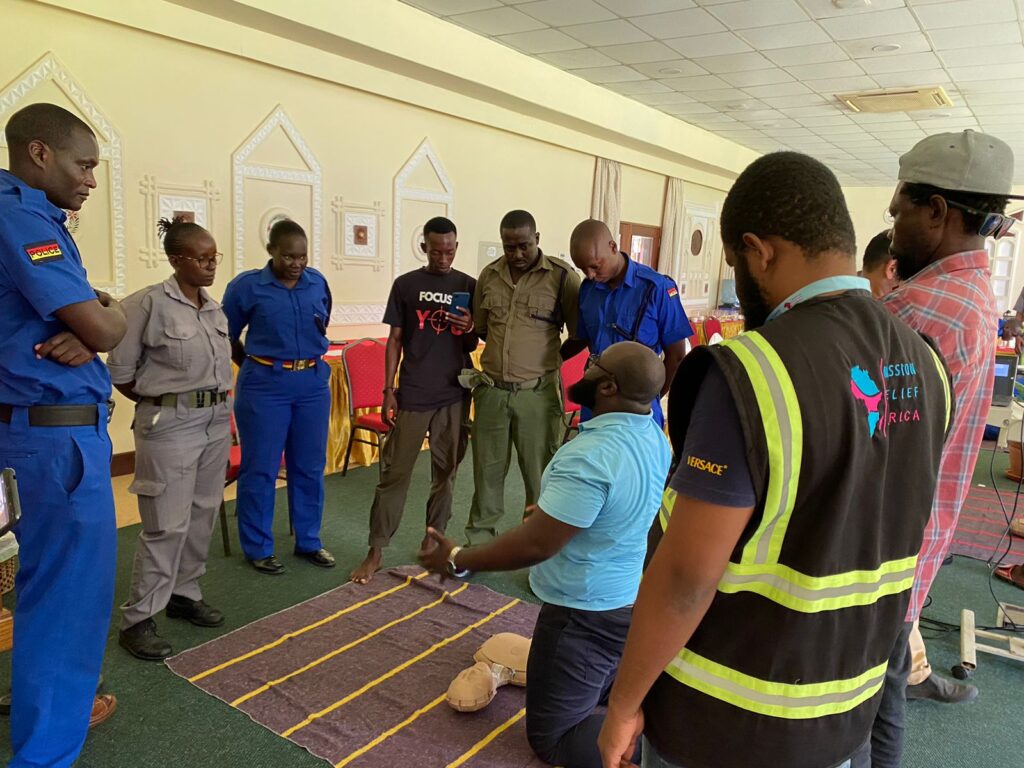By Flora Wainja
Beach operators in the coastal region have been challenged to protect the beaches which are their critical areas for their daily bread.
Issues of insecurity have in the recent past been a thorn in the flesh for those planning to visit the beaches, with operators along the sea line being challenged to protect their business place from criminals.
Coastal regional Commander Tourist police unit Dorcas Makau said that operators working along the beach have a responsibility to ensure the area is secure from insecurity and cases of immoralities as the country heads to festivities.
She spoke during a training organized by Mission Relief Africa on Beach rescue held at The Baobab Beach Resort in Kwale County.
The Regional tourist police boss promised that her office and the County government will appreciate the Beach operators and recognize their efforts in making beaches safe for visitors.
“The County government of Kwale and myself recognize and appreciate the efforts of the Beach operators,” he added.
The beach rescue training emphasis was mostly on the different stakeholders in the tourism to cooperate and correlate to curb death cases before emergency respondents show up to curb high insecurity and mortality rate in the sector.
Those trained include officials from different beach recreational resorts, beach operators and security agencies like Kenya tourist police unit, The Kenya police service, the County police and Kenya Forest Service unit.
The Beach rescue training was aimed at equipping the first emergency respondents to beach rescue like the beach operators formerly known as ‘beach boys’ who are the key grass roots response and Kenya police service and police tourist units tourist in case of rescue incidents.
The training sessions were conducted by a paramedic from prehospital care and aid worldwide who gave the attendees a clear procedure for the rescue training depending on whether it is a clinical or biological and especially the case and incident.
“Safety is very vital. The scene should be safe first before anything,” said Evans Oduor.
“After which you tap the patient to ascertain whether conscious or not, then check for pulse if not give them CPR,” he added.
He said that taping the patient to know whether he or she is conscious is important before applying Cardiopulmonary Resuscitation procedure.
“You should only give a CardioPulmonary Resuscitation when the victim is established to have no pulse. “Emphasized Evans.
Where the rescue is breathing but unconscious he added that the airway is blocked so the rescuer should lift their chin and tilt the head to unblock the airway.
Mission Relief Africa official Mohammed Rafik Rauf said that Kenya Ferry is leading in stampede cases involving locals crossing during the rush morning hours to get to work and evening from work.
“The Likoni Kenya Ferry Crossing stampede is the leading Road Traffic Accident in the Coastal region. “He added.
Most road accidents victims, he said, are suspected to suffer neck and head injuries and therefore using jaw thrust is the most efficient.
“Road accident victims are discouraged from the use of public transportation because some may have head or neck injuries hence emergency transportation is the most advisable,” he urged.


